With over $100 billion in U.S. tariffs collected in 2025, making it the fourth-largest revenue source for the federal government, retailers are being pushed to rethink the fundamentals.
Inflation, cost volatility, and supply chain complexity are colliding with shifting consumer expectations. In this high-stakes environment of tariffs, technology is no longer a nice-to-have, but it’s the only way forward.
As global retail faces one of its most unpredictable economic landscapes in decades, Re:Tech Disrupt returned for its fourth edition, this time focused on a critical theme: Retail Innovation Under Tariffs.
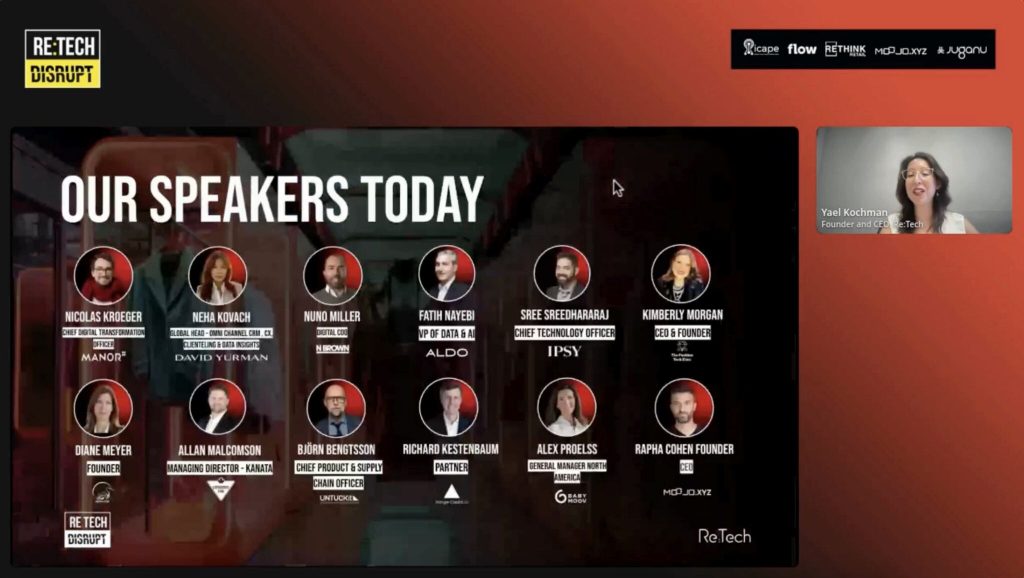
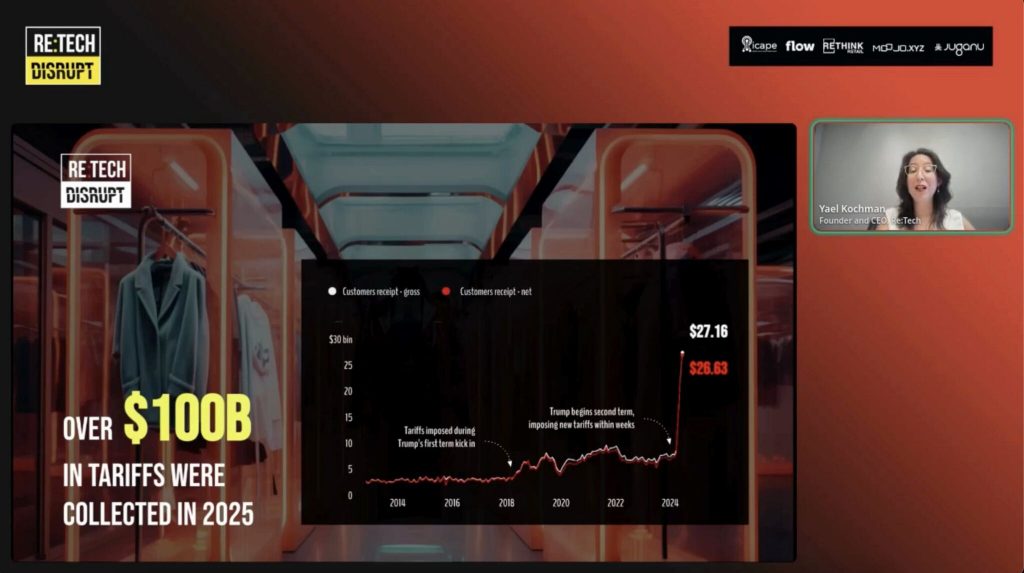
One of the biggest questions facing retailers today amidst tariffs is how to drive efficiency, reduce operational drag, and preserve margins when every input cost is rising. Richard Kestenbaum of Triangle Capital hosted Fâtih Nâyebi, VP of Data & AI at Aldo Group, and Björn Bengtsson, Chief Product & Supply Chain Officer at UNTUCKit, exploring how AI and automation are reshaping the cost structure of modern retail.
Nâyebi offered a clear takeaway: optimization is not about reducing headcount, but it’s about scaling intelligence. “There are always opportunities to optimize and automate,” said Nâyebi. “Our revenue growth project uses AI to optimize markdowns and order fulfillment. It’s not just about cost-cutting; it’s about smarter decision-making and improving gross margin.” For Aldo, the path to resilience lies in data-driven planning, predictive inventory models, and intelligent allocation. Their AI tools don’t just automate, but they actively surface new opportunities to reallocate capital and reduce waste.
Bengtsson offered a pragmatic lens, pointing out that while AI isn’t yet replacing entire roles, it is driving measurable productivity: “We’re not there yet with AI driving productivity, but we are seeing real efficiency gains. We can now do the same amount of work with fewer people, and that matters.” He noted AI’s potential to replace time-intensive tasks like photo shoots, with AI-generated imagery becoming a viable tool for e-commerce and marketing.
The efficiencies in these cases are what helps with cost cutting innovations, particularly in a tariff fueled economy. Cost control isn’t about slashing, but i’s about optimizing the system at every layer, from planning and fulfillment to marketing and content production.
Key Takeaways:
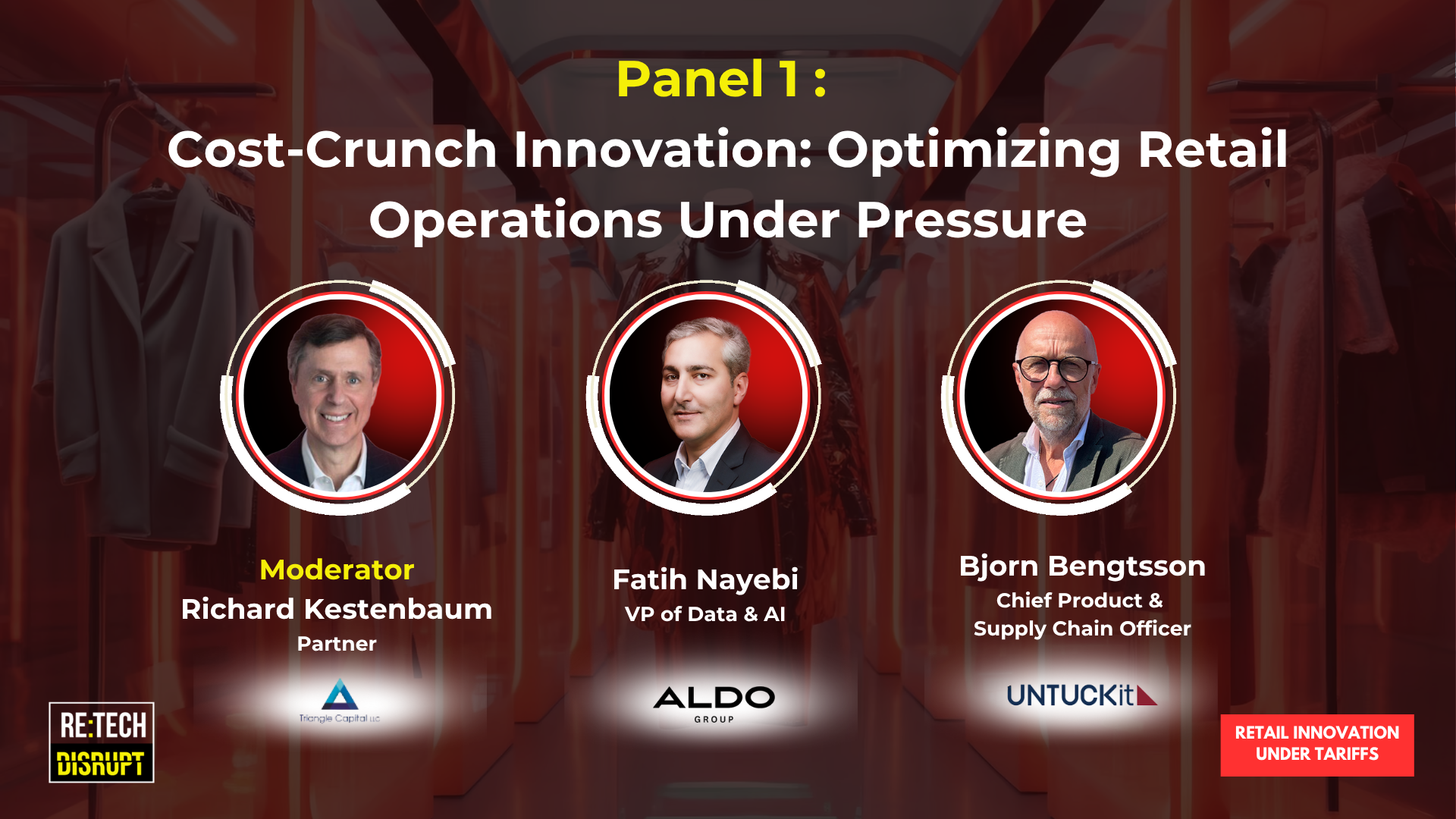


Exploring a different kind of innovation is key for retailers, on how they are creating entirely new revenue streams in response to economic pressure. Kimberly Morgan, CEO of The Fashion Tech Exec, hosted insights from Sree Sreedhararaj, CTO at IPSY, Neha Kovach, Global Head of CX, CRM & Data at David Yurman, and Rapha Cohen, Founder & CEO of Moojo.
Morgan reframed tariffs not as roadblocks but as springboards: “Every market shift is an opportunity. Retailers are rethinking not just operations, but also how they grow.”
One of the clearest themes was the growing importance of customer intelligence as a foundation for both experience and revenue. “Customers want to be known, and not repeat themselves,” said Kovach. At David Yurman, that means building tech that automates personalization, not just for efficiency, but to truly elevate frontline clienteling. “Our goal is to stop data dumpster diving and make every client touchpoint meaningful.” Kovach emphasized democratizing data, enabling advisors with AI-powered insights like top clients to reach out to and what to say “the right message, at the right time, to the right person.” Her team is deploying tools that proactively surface high-value customer insights to sales advisors, resulting in stronger engagement and smarter service. It’s personalization not just for the customer, but also for the associate.
IPSY’s Sreedhararaj described how AI fuels hyper-personalization for millions of monthly boxes: “Every customer has a happiness score. Our AI matches products, collects feedback, and evolves their profile monthly. It’s a continuous loop.” This model doesn’t just enhance consumer satisfaction, but it feeds data back to brands, creating a virtuous product innovation cycle.
Moojo’s Rapha Cohen made a strong case for why data is the new battleground: “In the last era, platforms like Google and Meta owned the funnel. Now, with ChatGPT and Gemini, we risk losing everything, unless retailers take control.” Moojo’s model allows retailers to embed AI agents on their own sites, maintaining ownership of customer interactions and behavior, and sharing that data securely across a trusted network.
Overall, retailers that succeed through tariffs won’t be the ones who sell more, they’ll be the ones who own the relationship, the data, and the infrastructure to act on both.
Key Takeaways:




Equal parts playbook and provocation, Nuno Miller, Digital COO at N Brown Group, outlined the traits of retailers who will survive, and lead, through economic uncertainty like tariffs. “Retailers must become more intelligent, more adaptable, and more efficient,” he said. “You can’t forecast this world. You have to build for flexibility.”
Miller emphasized that transformation is as much about culture as it is about code. He outlined three pillars for thriving through volatility:
His message was clear: In a tariff-driven, cost-heavy economy, the only winning strategy is to build a business that can evolve in real time: “It’s never just about technology. Culture and operating models must evolve too.”
Key Takeaways:
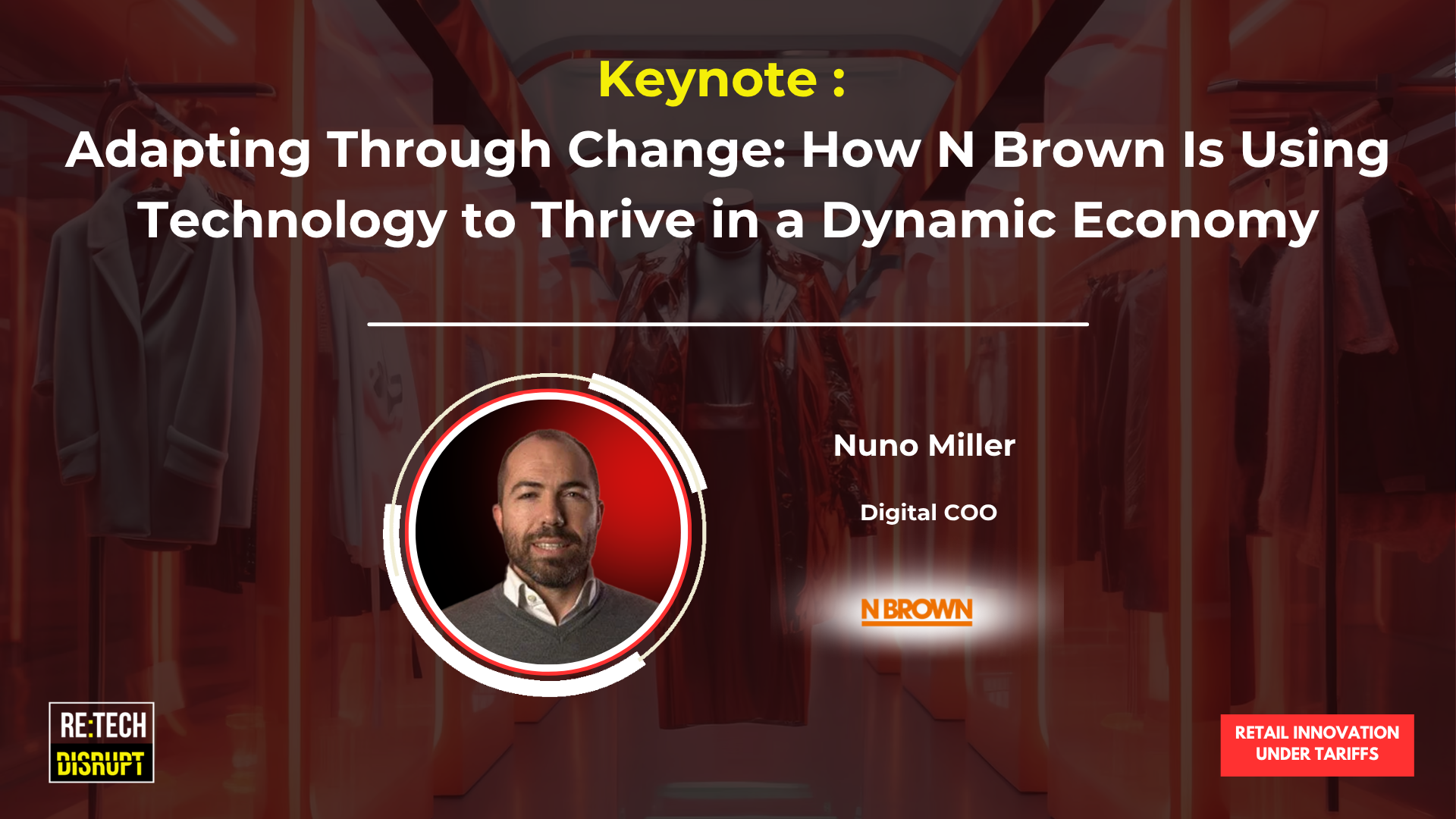
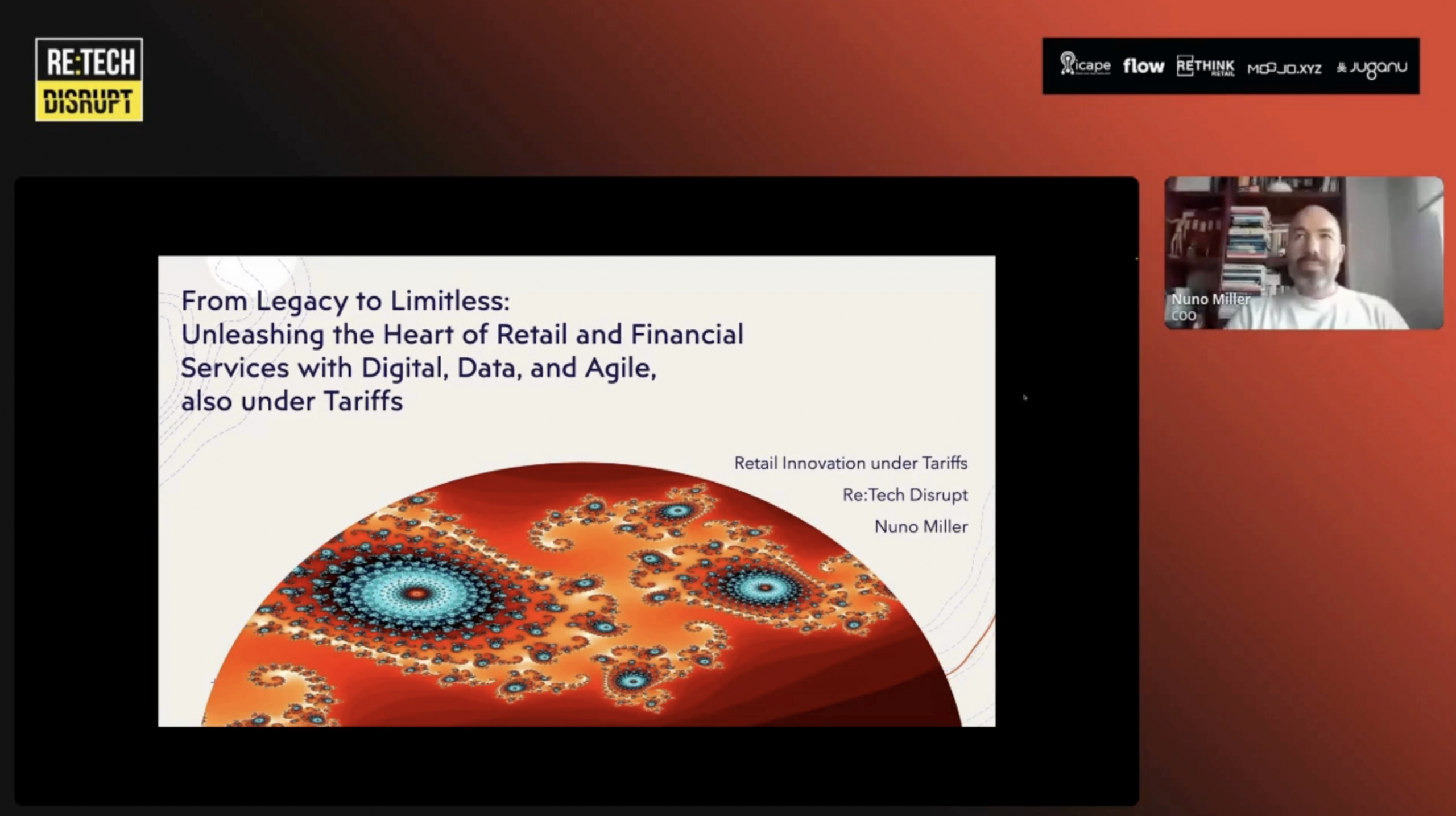

If there was one takeaway from Re:Tech Disrupt: Innovation under pressure is the new normal.
Whether the challenge is tariffs, inflation, or shifting consumer behavior, the retailers that will thrive are those who embrace technology not as a cost, but as a catalyst, for efficiency, for relevance, and for growth.
Didn’t catch the full event? You can download the full recording here.